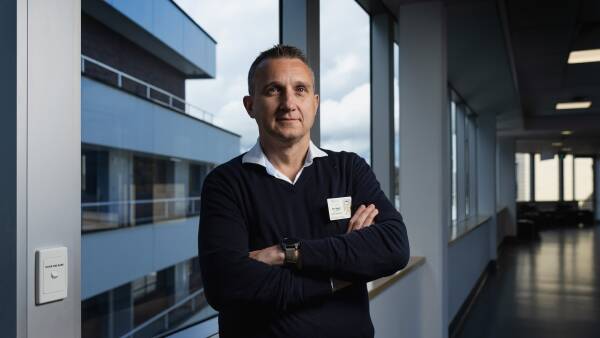
A clinical trial conducted at the Calvary Mater Newcastle has dramatically increased survival rates for patients with high-risk blood cancer, elevating them from 50 percent to an impressive 90 percent. The trial focused on patients diagnosed with large B-cell lymphoma, who received an immunotherapy drug known as glofitamab alongside standard chemotherapy treatments.
The phase-two trial, led by Dr. Wojt Janowski, Director of Health Research at the Calvary Mater, marks a potential turning point in treatment approaches for high-risk lymphoma patients. “This does look like it is going to be a paradigm shift in how we approach our high-risk patients with lymphoma,” Dr. Janowski stated.
Around 15 to 20 patients in the Hunter region could potentially benefit from this treatment annually if it proceeds to market. Dr. Janowski emphasized the importance of rigorous randomized studies to validate the claim that a treatment saves lives. “Before then, you need to prove your approach is safe and that it looks better than what you previously expected for the patients. This ticks both those boxes easily,” he noted.
The trial, named the Coalition, involved participants from 15 sites across Australia, including the Calvary Mater Newcastle. Initiated by the Peter MacCallum Cancer Centre in Melbourne, the study included 80 patients aged between 18 and 65, with a median age of 58. Seven individuals from the Hunter region took part, all of whom exhibited clinical features suggesting their cancer would likely not respond well to standard therapies.
Dr. Janowski reported that the combination of glofitamab with standard treatment raised the survival rate after two years from approximately 50 percent to 90 percent. More than 95 percent of participants completed the therapy, and 98 percent recorded a “complete response,” meaning their blood cancers became undetectable on the most sensitive scans available.
The results after two years were equally promising, showcasing an 86 percent rate of progression-free survival and a 92 percent overall survival rate. “The two-year mark is very important,” Dr. Janowski explained. “For most people with aggressive lymphoma, if they were going to relapse, they would have done so by that point. At the five-year mark, we generally say people are most likely clear of cancer. The risk of it coming back then is very small.”
Dr. Janowski also noted that the trial reflects the dedication of cancer services at the Mater. He described the facility as “the feisty little underdog when it comes to cancer research,” emphasizing its significant contributions to global lymphoma research. “This study was an important contribution to global lymphoma research,” he said.
The trial demonstrated that the treatment is both feasible and effective, indicating it is worthy of further investigation and rapid development. Dr. Janowski highlighted that the study found “no major new toxicities,” with side effects deemed manageable.
“This is one of the first studies published using this strategy in high-risk patients,” he remarked. The pharmaceutical companies behind these medications have already moved swiftly to phase-three studies, which are underway globally. These trials are essential for convincing registration authorities and health systems, such as the Pharmaceutical Benefits Scheme, to approve these more expensive treatments.
In summary, the findings from the Coalition trial at the Calvary Mater Newcastle signify a major development in the fight against high-risk blood cancers, offering hope to patients and advancing the field of oncology.







